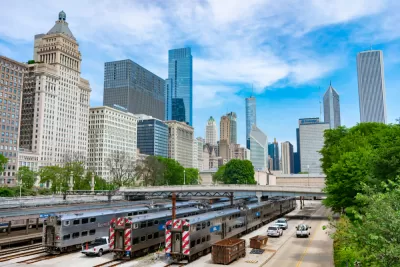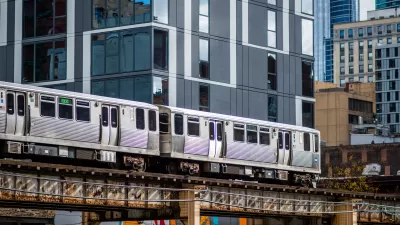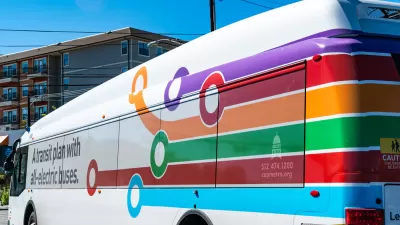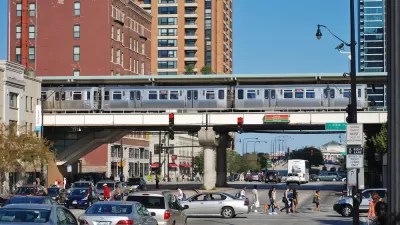The new legislation will promote more development near transit in the city’s underserved neighborhoods and improve safety for pedestrians and other road users.

A press release from the Chicago mayor’s office announces the passage of the city’s Connected Communities Ordinance, which updates Chicago’s Transit-Oriented Development (TOD) ordinance to promote more equitable outcomes. “Designed to stimulate equitable development near public transit, the ordinance creates jobs by catalyzing investment near transit, makes streets safer for all Chicagoans who walk, bike, drive or roll their wheelchair, and promotes affordable housing options near transit.
Calling it “the most comprehensive and equity-focused update to the City’s transit-oriented development policy yet,” the release states that “Key goals of the Connected Communities Ordinance [include] facilitating more investment near transit on the South and West sides of the City and preventing displacement and promoting affordable housing options in transit-rich communities on the North and Northwest sides – all while making sidewalks and streets safer everywhere.”
The city first passed a transit-oriented development (TOD) policy in 2016, but an analysis found that 90 percent of projects that took advantage of TOD incentives were located in Chicago’s wealthier neighborhoods. The new ordinance implements the recommendations made in the 2021 Equitable Transit-Oriented Development (ETOD) Policy Plan. One key component of the policy is expanding incentives to more areas of the city, including more bus corridors.

Alabama: Trump Terminates Settlements for Black Communities Harmed By Raw Sewage
Trump deemed the landmark civil rights agreement “illegal DEI and environmental justice policy.”

Study: Maui’s Plan to Convert Vacation Rentals to Long-Term Housing Could Cause Nearly $1 Billion Economic Loss
The plan would reduce visitor accommodation by 25% resulting in 1,900 jobs lost.

Planetizen Federal Action Tracker
A weekly monitor of how Trump’s orders and actions are impacting planners and planning in America.

Wind Energy on the Rise Despite Federal Policy Reversal
The Trump administration is revoking federal support for renewable energy, but demand for new projects continues unabated.

Passengers Flock to Caltrain After Electrification
The new electric trains are running faster and more reliably, leading to strong ridership growth on the Bay Area rail system.

Texas Churches Rally Behind ‘Yes in God’s Back Yard’ Legislation
Religious leaders want the state to reduce zoning regulations to streamline leasing church-owned land to housing developers.
Urban Design for Planners 1: Software Tools
This six-course series explores essential urban design concepts using open source software and equips planners with the tools they need to participate fully in the urban design process.
Planning for Universal Design
Learn the tools for implementing Universal Design in planning regulations.
Caltrans
Smith Gee Studio
Institute for Housing and Urban Development Studies (IHS)
City of Grandview
Harvard GSD Executive Education
Toledo-Lucas County Plan Commissions
Salt Lake City
NYU Wagner Graduate School of Public Service





























